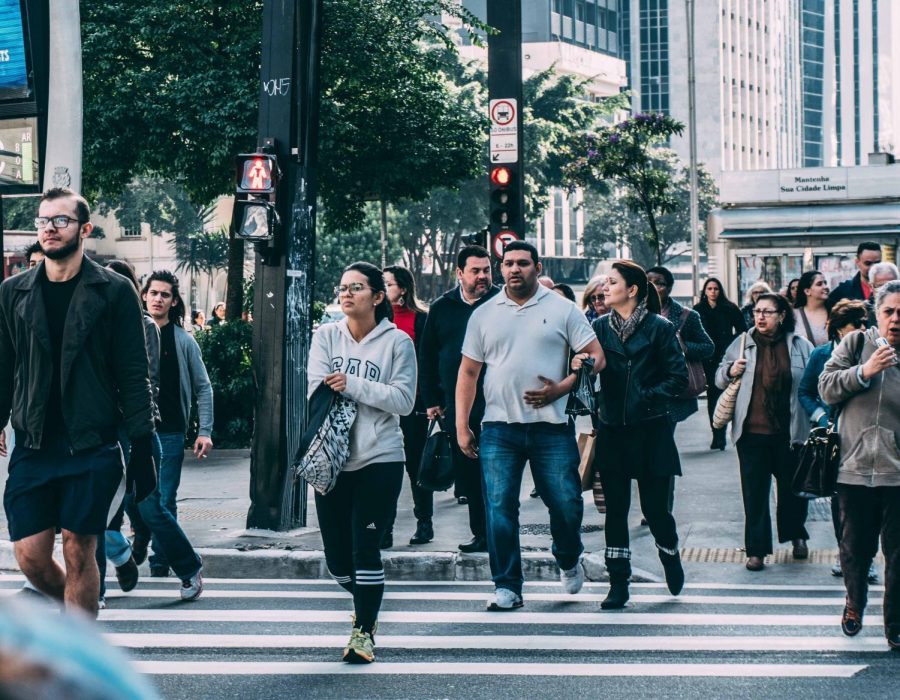Overcoming unconscious biases is crucial
Steve Corbin, UNI professor emeritus of marketing, discusses the importance of overcoming unconscious biases when it comes to race, sex, gender and class.
Nov 8, 2018
Editor’s Note: This letter to the editor was submitted by Steve Corbin, UNI professor emeritus of marketing.
With the 2018 election concluded (thankfully), maybe we can get back to a normal life without political banter and negative campaigning. Until, that is, the next news story reveals something about immigration, race, sexual orientation, birthright citizenship, mass murder or other issues that raise our dander.
Why do people get upset and at times display uncivil behavior? Fifty percent of our being is DNA-related; I trust you selected good parents. The other 50 percent is nurture-oriented; you were raised in a good-to-great family, neighborhood, school district and associated only with the best people, correct? Everything we’ve been exposed to since birth is lodged in our brain.
Past experiences form our attitudes, values, beliefs and behavior and for some to radical extremes such as killing 11 people at a Pittsburgh synagogue, child and spousal abuse, ignoring refugee-asylum individuals, supporting white supremacy and spewing hate.
Social psychologists note everyone has an unconscious bias. For example, what goes through your mind when you observe a non-English speaking person, an individual who you can’t decipher their gender, a shabbily dressed person holding a “homeless–need food” sign or a woman dressed with a black veil covering her face?
With today’s unparalleled divisiveness, it may be time to get an honest assessment of our biases so we can consciously take steps to acknowledge who we are, identify blind spots and shortcomings, ponder actions to overcome biases and attempt to transform into more mature, accepting, tolerant and civil people.
I commend you to read Dolly Chugh’s book “The Person You Mean to Be: How Good People Fight Bias” or take Harvard University’s online Implicit Association Test that will raise awareness where biases in race, gender, sexual orientation, age and other areas may exist.
Ponder this Aug. 3, 2018 job posting from Williams College, Williamstown, Massachusetts, inviting applications for the position of Assistant Coach of Nordic Skiing: “Our expectation is that the successful candidate will excel at working in a community that is broadly diverse with regard to race, ethnicity, socioeconomic status, gender, nationality, sexual orientation and religion.”
Assuming you are a qualified Nordic skiing coach, how well would you excel at the seven identified areas?
Do you have a problem working with individuals from a certain race? Can you work with people of a different ethnicity? Can you work equally well with individuals from a different socioeconomic station in life? Do you hold any biases toward a particular gender? Can you successfully interact with people who are of a different nationality? Are you accepting of transgender, gay, lesbian and people who question their sexual orientation? And, finally, of the 4,200 religions in the world, is your chosen belief the only acceptable one or are you non-judgmental of other’s belief system? Reflect on your answers.
Research is replete with the fact that the most emotionally mature adults are those who seek internal peace, are principled, possess a spirit of humility, know their weaknesses and are accepting of other people’s attributes.
Overcoming one’s unconscious biases are becoming more important, especially where up to 100 languages are spoken in some Iowa school districts, Iowans with Hispanic descent are our largest minority group, 99.55 percent of Iowans are of immigrant orientation, 3.2 percent of Iowa adults are LGBTQ, religious beliefs in Iowa range from the most orthodox to proclaimed atheist, Iowa political ideology are polar opposites and Iowa values can no longer be defined.
The only way in which Iowa will become a better place to live is for all of us to reflect on issues that divide us and overcome our biases so civility can once again remain steadfast in Iowa. Plus, Iowa needs political hygiene right now.

















